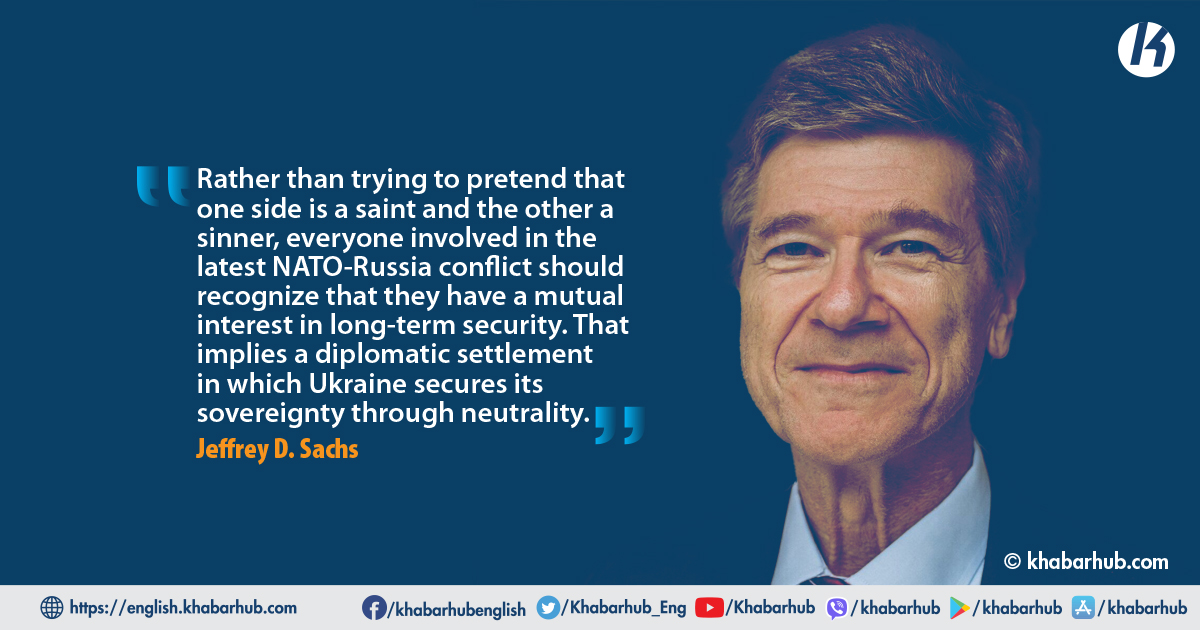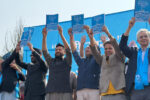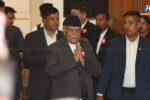Ukraine’s Western friends claim that they are protecting the country by defending its right to join NATO. The opposite is true. In defending a theoretical right, they are jeopardizing Ukraine’s security by raising the likelihood of a Russian invasion.
Ukraine’s independence could be defended far more effectively by reaching a diplomatic agreement with Russia that guarantees Ukraine’s sovereignty as a non-NATO country, akin to Austria, Finland, and Sweden (all members of the European Union but not of NATO).
Specifically, Russia would agree to withdraw its troops from Eastern Ukraine and demobilize near Ukraine’s border; and NATO would foreswear enlargement into Ukraine, provided that Russia respects Ukraine’s sovereignty and that Ukraine respects Russian security interests. Such an agreement is possible because it is in the interest of both sides.
To be sure, those advocating Ukrainian membership in NATO consider such a deal naive. They point out that Russia invaded Ukraine and annexed Crimea in 2014, and that the current crisis arose because Russia has amassed more than 100,000 troops on Ukraine’s border, threatening a new invasion.
The Kremlin has thus violated the terms of the 1994 Budapest Memorandum, wherein Russia promised to respect Ukraine’s independence and sovereignty (including over Crimea) in exchange for Ukraine’s surrender of the massive nuclear weapons stockpile that it inherited following the collapse of the Soviet Union.
History suggests that it is best to keep Russian and NATO forces geographically separated, rather than confronting each other directly across a border.
Nonetheless, it is possible that Russia would accept and respect a neutral Ukraine. An offer in which Ukraine acquires that status has never been on the table.
In 2008, the United States proposed that Ukraine (and Georgia) be invited to join NATO, and that suggestion has loomed large in the region ever since.
Viewing the US move as a provocation to Russia, the governments of France, Germany, and many other European countries prevented the Alliance from extending an immediate invitation to Ukraine; but in a joint statement with Ukraine, NATO leaders made clear that Ukraine “will become a member of NATO.”
From the Kremlin’s perspective, NATO’s presence in Ukraine would pose a direct threat to Russia’s security. Much of Soviet statecraft was designed to create a geographical buffer between Russia and the Western powers.
Since the collapse of the Soviet Union, Russia has vociferously opposed NATO’s enlargement into the former Soviet bloc. Yes, Putin’s reasoning reflects a continuation of the Cold War mindset; but that mindset remains active on both sides.
The Cold War was marked by a series of local and regional proxy wars to determine whether the US or the Soviet Union would install regimes favorable to its side.
While the battleground shifted around the world – from Southeast and Central Asia to Africa, the Western hemisphere, and the Middle East – it was always bloody.
But since 1992, most wars in pursuit of regime change have been led or supported by the US, which came to see itself as the sole superpower following the Soviet Union’s collapse.
NATO forces bombed Bosnia in 1995 and Belgrade in 1999, invaded Afghanistan in 2001, and bombed Libya in 2011. The US invaded Iraq in 2003; and in 2014, it openly supported the Ukrainian protests that overthrew the country’s pro-Russian president, Viktor Yanukovych.
Of course, Russia also has pursued regime-change operations. In 2004, it meddled in Ukraine to assist Yanukovych through voter intimidation and electoral fraud.
These actions were eventually blocked by Ukraine’s own institutions and mass protests. Russia also continues to impose or prop up friendly regimes in its near periphery, most recently in Kazakhstan and Belarus (which is now fully under Putin’s thumb).
But the mutual animosity and distrust between Russia and the West has a very old pedigree. Throughout its history, Russia has feared and, indeed, endured repeated invasions from the West, while Europeans have feared and endured repeated expansionist efforts by Russia from the East. It has been a long, sad, and bloody saga.
With statesmanship on both sides, this historic animosity might have and could have subsided following the demise of the Soviet Union.
That was possible in the first half of the 1990s, but the opportunity was squandered. The beginning of NATO enlargement played a role. In 1998, George F. Kennan, the long-time diplomat and historian of US-Soviet relations, was prescient and pessimistic.
“I think [NATO expansion] is the beginning of a new Cold War,” he said. “I think the Russians will gradually react quite adversely and it will affect their policies. I think it is a tragic mistake.” William Perry, the US Secretary of Defense from 1994 to 1997, agreed, and even contemplated resigning from President Bill Clinton’s administration over the issue.
Ukraine itself would be much safer if NATO stopped its eastward expansion in exchange for Russia’s withdrawal from eastern Ukraine and its demobilization of forces along Ukraine’s border. Diplomacy along these lines, supported by EU and United Nations involvement, is urgently needed.
Neither side can claim innocence at this point. Rather than trying to pretend that one side is a saint and the other a sinner, everyone should be focused on what it will take to achieve security for both sides and the wider world.
History suggests that it is best to keep Russian and NATO forces geographically separated, rather than confronting each other directly across a border.
European and global insecurity were at their highest when US and Soviet forces faced off against each other at short range – in Berlin in 1961 and in Cuba in 1962.
Under those harrowing, world-threatening circumstances, the construction of the Berlin Wall served as a stabilizer, albeit a deeply tragic one.
Today, our paramount concern should be Ukraine’s sovereignty and peace in Europe and the world, not NATO’s presence in Ukraine, and certainly not a new wall.
Ukraine itself would be much safer if NATO stopped its eastward expansion in exchange for Russia’s withdrawal from eastern Ukraine and its demobilization of forces along Ukraine’s border. Diplomacy along these lines, supported by EU and United Nations involvement, is urgently needed.
(Jeffrey D. Sachs, University Professor at Columbia University, is Director of the Center for Sustainable Development at Columbia University and President of the UN Sustainable Development Solutions Network)
Copyright: Project SYndicate







Comment